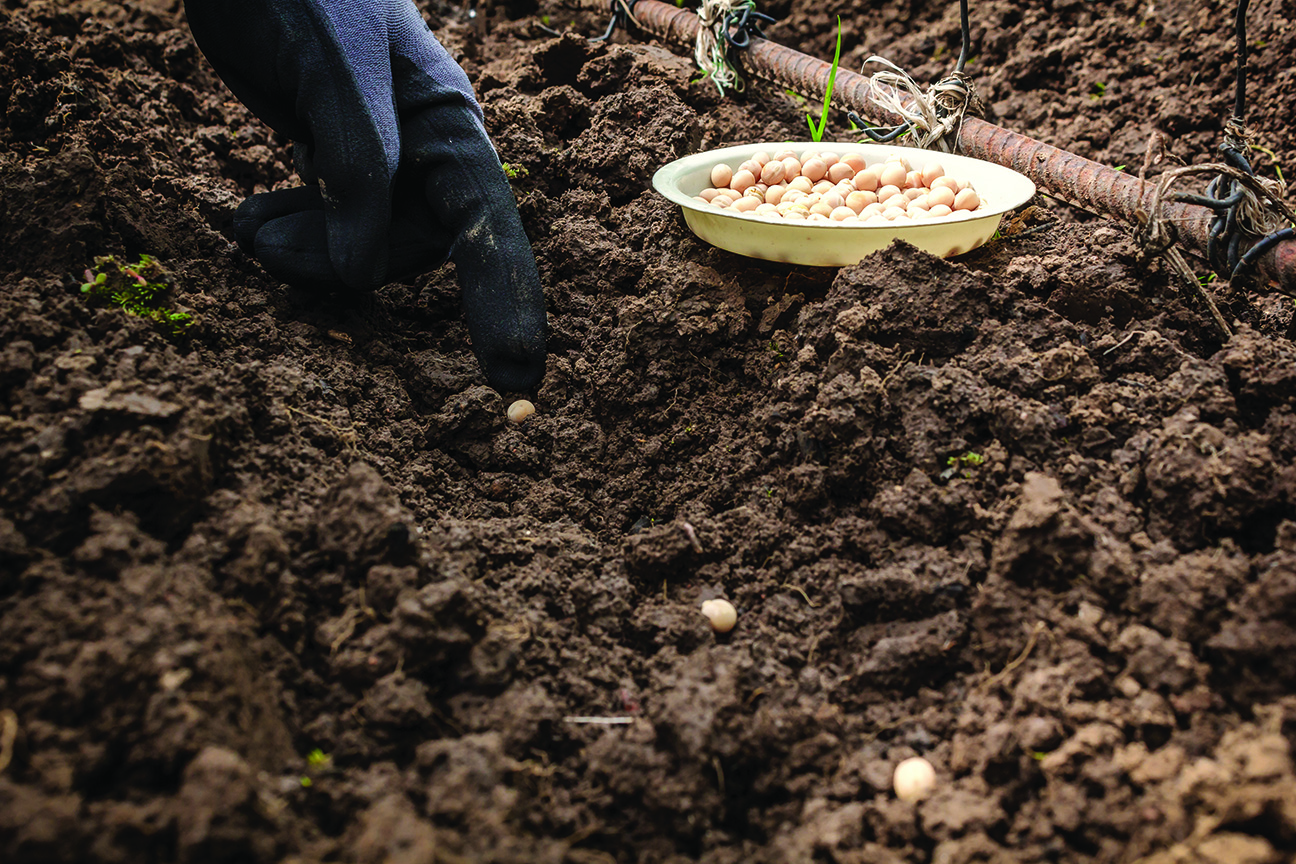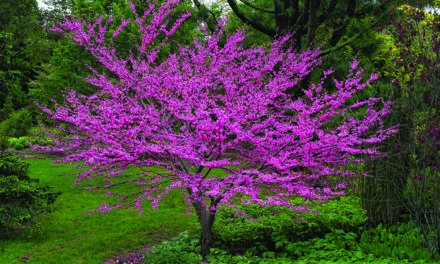
According to a University of Maryland Extension agent, both peas, above, and potatoes should be planted when the soil is moist, but not wet! With heavy spring rainfall, this might make timing difficult. Mid-March is also a good time for seeding lettuce, spinach, radishes and turnips.
Hard work and patience are important tools for any gardener. But a bit of luck also goes a long way!
A four-leaf clover tucked inside an overall pocket might be one way to guarantee a providential outcome.
However, as most Master Gardeners know, getting plants into the ground at the right time is even better.
While expert advice helps, it especially resonates when echoing traditional wisdom passed down through generations, such as the age-old lore regarding planting peas and potatoes on St. Patrick’s Day.
Mikaela Boely, senior agent associate, Horticulture for University of Maryland Extension Service, having grown up in Wisconsin, where it was, she related, “too cold, snowy, or frozen” for practical application, never had been taught about the custom.
But from the vantage point of her current professional post in Talbot County, agrees that it makes sense here, and has recommendations for varieties and planting tips:
• Potato: Blue, Butte, Caribe, Gold Rush, Irish Cobbler, Katahdin, Kennebec, Norgold Russett, Red Bison, Red Norland, Red Pontiac, Rose Gold, Yellow Finn, Yukon Gold
• Peas (garden): Alaska, Frosty, Green Arrow, Knight, Laxton’s Progress,, Lincoln, Little Marvel, Maestro, Novella II, Patriot, Sparkle, Wando
• Peas (edible-pod): Dwarf Gray Sugar, Melting Sugar Mammouth, Oregon Sugar Pod types, Sugar Ann, Sugar Snap, Sugar Snow, Sugar Sweet
“I don’t recommend potatoes from the grocery store- unless they come from a local source and are grown locally, as they are not well-adapted to our area,” Boely said. “Look for a reputable source that sells disease-free slips; it’s best to use a grower or source in the Mid-Atlantic that will match growing conditions they were cultivated in.
“It’s a great idea to soak peas prior to planting, or even sprout peas on damp paper towels to make sure they are viable (especially if you are using older seeds).
“Just after they begin germinating, you will want to transplant to outdoor soil. Both peas and potatoes should be planted when the soil is moist, not wet! With heavy spring rainfall, this might make timing difficult,” Boely continued, adding that “Mid-March is also a good time for seeding lettuce, spinach, radishes, and turnips.
“It’s also good to note that our frost-free date is typically around April 15, so enthusiasts should not be starting tomato seeds indoors until late March or even April.
“Snow is not necessarily a problem — I think the bigger issue is that you don’t want a saturated or too-wet soil.
“The ground or soil should be workable, so if it’s too cold or frozen you may need to wait,” Boely noted.
According to Talbot County Master Gardener Missy Corley, gardeners can even consider planting peas before St. Patrick’s Day (beginning of March should be fine).
“Don’t be alarmed if seed potatoes ordered aren’t here in time for St. Patrick’s Day,” she said. “If gardeners have accidentally sprouted potatoes in their pantry, planting them is a great way to reduce waste. Pile them with lots of straw and the potatoes will be much easier and cleaner to harvest later on.”
Coordinator of Talbot County Public Library’s Seed Library, Corley mentioned that pea seeds are available for safe pickup inside the first set of doors to the library lobby, in the area where the Books to Go can be picked up by patrons.
(Note: As of mid-February, plans were underway to have a seed library station at the St. Michaels branch, as well. For most current information, folks should visit tcfl.org or call their respective library branch to confirm and learn when the doors will be unlocked, Missy Corley suggested.)





